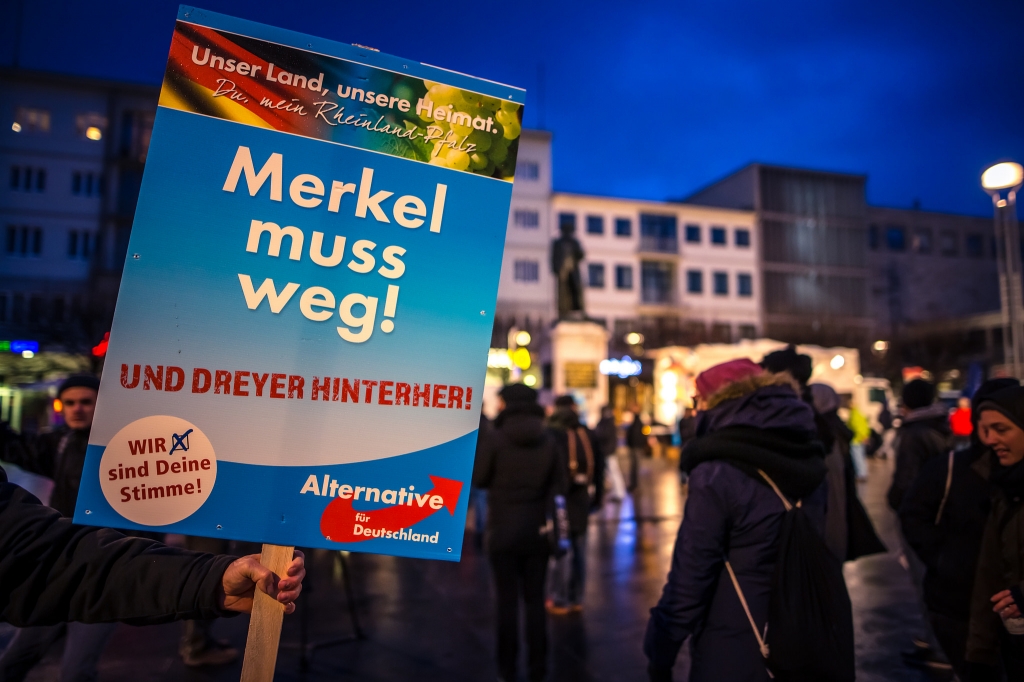-
Tips for becoming a good boxer - November 6, 2020
-
7 expert tips for making your hens night a memorable one - November 6, 2020
-
5 reasons to host your Christmas party on a cruise boat - November 6, 2020
-
What to do when you’re charged with a crime - November 6, 2020
-
Should you get one or multiple dogs? Here’s all you need to know - November 3, 2020
-
A Guide: How to Build Your Very Own Magic Mirror - February 14, 2019
-
Our Top Inspirational Baseball Stars - November 24, 2018
-
Five Tech Tools That Will Help You Turn Your Blog into a Business - November 24, 2018
-
How to Indulge on Vacation without Expanding Your Waist - November 9, 2018
-
5 Strategies for Businesses to Appeal to Today’s Increasingly Mobile-Crazed Customers - November 9, 2018
Germany mulls fallout from elections, nationalist gains
Although the Social Democrats (SPD) retained their majority in Rhineland Palatinate, the party was arguably the biggest loser, taking only 12.7% of the vote in Baden-Württemberg and 10.6% in Saxony-Anhalt.
Advertisement
Angela Merkel’s party lost support in two of three states that held regional elections Sunday, in what could be a precursor to the upcoming general election.
Poor results could pile more pressure on Merkel, who will try and tie up a deal with Turkey this week in order to restrict the huge amounts of migrants heading to Europe via the Mediterranean and the Aegean seas.
Andreas Kluth, Berlin bureau chief of The Economist, told CNBC on Monday that “Angela Merkel and her refugee policy per se did not lose”.
While Sunday’s results will likely generate new tensions, Merkel herself is likely secure: she has put many state-level setbacks behind her in the past, and there’s no long-term successor or figurehead for any rebellion in sight.
Ms. Merkel’s most vocal critic in her conservative bloc, Bavarian State Premier Horst Seehofer, said the elections showed Ms. Merkel’s handling of the refugee crisis had created an existential threat to the chancellor’s own Christian Democrats and the allied Christian Social Union of Bavaria. But after Sunday’s results, “a discussion will start in the CDU as to whether it’s worth agitating against Merkel on refugee policy – and it won’t happen, because they know they will lose”.
Another representative of the alternatives, Boris Preckwitz, claims Merkel’s current stance lacks support not just in her country, but in Europe as a whole: “We do not believe in what Merkel is trying to sell as the “European solution”.
On the eve of the vote, Interior Minister Thomas de Maizière joined calls from both the political mainstream as well as civic and religious groups, urging the electorate to shun AfD.
Merkel’s conservative Christian Democrats (CDU) have been losing support to the anti-immigration Alternative for Germany (AfD) party, which has profited from the growing unease.
“There are issues related to Turkey, and it is very important to say that Turkey must fulfil certain conditions, there is no compromise”, she said. Merkel’s CDU fell from 39 percent to 27 percent there. More than 1 million refugees, many of them from Iraq and Syria, registered in Germany previous year.
The populist Alternative for Germany, which focused its campaign on opposition to Merkel’s refugee policy, won 23% of the vote in the eastern state of Saxony-Anhalt according to initial projections based on exit polls released by public broadcaster ARD.
In the southwestern region of Rhineland-Palatinate, AfD also came in third, although the SPD and the CDU had substantial leads. Three German states are voting in elections that are the first significant political test since the massive influx of migrants, with a nationalist party expected to perform strongly amid unease over Chancellor Merkel’s liberal approach.
Advertisement
Mrs Merkel therefore lives to fight another day.





























